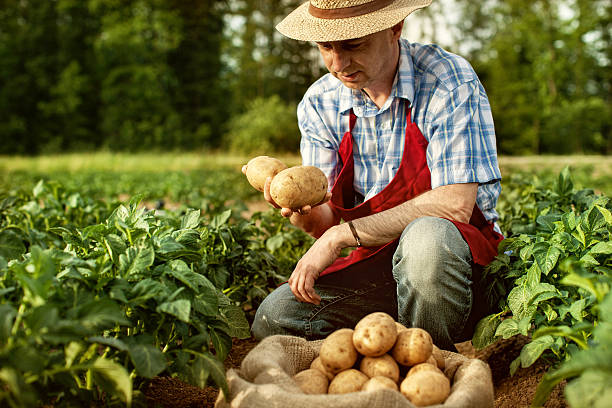



Article by: Hari Yellina
Farmers are warning that as pricing constraints render the staple crop untenable in Australia, growers would abandon the industry. Potatoes, unlike most crops, are not handled in wholesale markets where supply and demand fluctuate. Farmers instead sell them to companies who wash and package them (washpackers) and negotiate rates with supermarkets in the same way as dairy milk processors do. “It’s not even close to being a free market. For the grower, the price does not fluctuate dependent on demand or supply “Julian Ackley, president of the WA Seed Potato Producers, stated. “This season, we’ll definitely see another 5% to 10% of what’s left of them slip out.”
Tony Galati runs Spudshed, a potato producer, washpacker, and retailer in Western Australia. “I’m a grower and a packer, and I’d never grow for a packer.” He claimed that even if prices were cut, chain shops could “definitely” pay farmers more and still earn money. “Potatoes were about $4 at the supermarket when farmers were making 80 to 90 cents per kilo. They’re now earning 40 to 50 cents per kilo, and they’re still around $4 at the store — that money isn’t going to waste.” Mr. Ackley cautioned that if family farmers left the industry, corporations would take their place. “I believe the sector will be controlled by more large corporate growers.”
In 2016, the WA potato sector was deregulated, leading prices to plummet and many growers to abandon the state. For the time being, Julian Ackley must make difficult decisions on his own property. He may charge whatever he wants to the farmers who buy his seed potatoes to grow fresh potatoes because he is a seed potato grower. “Trying to figure out what to charge for seed this season is quite tough,” he added, “since I know all of my farmers are having a hard time getting a reasonable price for their product.” However, his harvest has dragged on perilously close to winter, putting his crop’s profitability in jeopardy. “We’re down to fewer than ten percent [of the harvest].” Normally, that would be a quick process, but it’s difficult with everything being so wet and heavy. “We still have around $70,000 in potatoes out here that I’d like to have since that’s about the profit margin,” says the farmer.